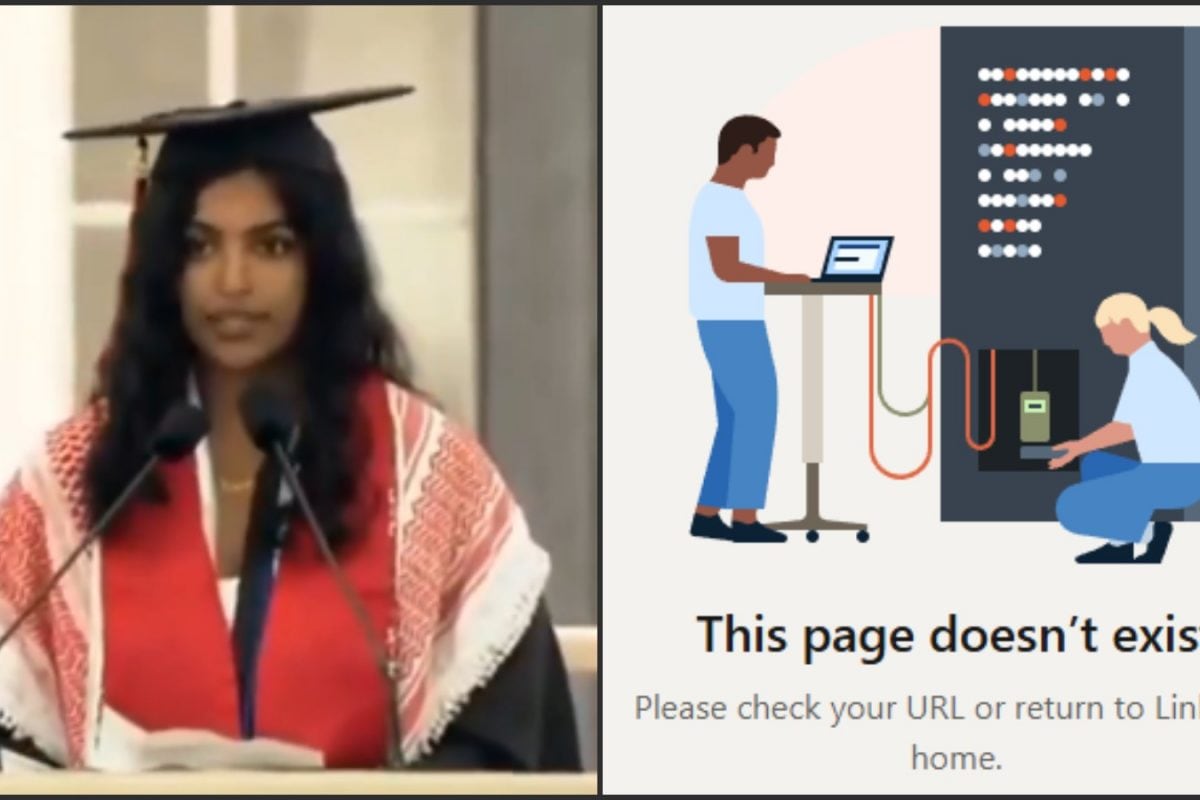

Megha Vemuri, an Indian-American student and the Class of 2025 president at the Massachusetts Institute of Technology (MIT), has deactivated her LinkedIn profile following a contentious pro-Palestine speech she delivered at the university's graduation ceremony. The speech, which strongly criticized MIT's ties to Israel and voiced solidarity with Palestinians, has ignited a social media storm, with Vemuri facing both support and severe backlash.
During the commencement address, Vemuri wore a red keffiyeh, a traditional scarf symbolizing support for Palestine. She accused MIT of being complicit in what she described as a "genocide" in Gaza, criticizing the university's research ties with the Israeli military. "The Israeli occupation forces are the only foreign military that MIT has research ties with; this means that Israel's assault on the Palestinian people is not only aided and abetted by our country, but our school," she stated. She urged her fellow graduates to support aid efforts, call for an arms embargo, and demand that MIT sever its ties with Israel.
Vemuri's remarks referenced growing student activism on campus, including votes by the undergraduate body and Graduate Student Union to cut ties with the Israeli military. She praised students who stood in solidarity with Palestine, despite facing "threat, intimidation, and suppression coming from all directions, especially university officials.” She declared, "You showed the world that MIT wants a free Palestine," which was met with applause from the audience.
The speech has sparked intense debate and divided opinions. Supporters have lauded Vemuri's courage to speak out on the sensitive issue, while critics have accused her of antisemitism and have threatened her future career prospects. MIT, while affirming its support for free expression, issued a statement indicating that Vemuri was banned from the ceremony for misleading organizers and leading a protest from the stage, disrupting the event.
The controversy surrounding Vemuri's speech reflects a broader trend of heightened tensions on college campuses across the United States concerning the Israeli-Palestinian conflict. As pro-Palestine protests surge, universities are grappling with balancing free speech rights and concerns about hate speech and campus safety.
Prior to this incident, other instances of students facing repercussions for pro-Palestine activism have surfaced. Prahlad Iyengar, another MIT student of Indian origin, was suspended following the publication of a pro-Palestine essay in a student magazine. These incidents have fueled concerns about the suppression of free expression on campuses and the potential for unjust criminalization of students based on their political views.